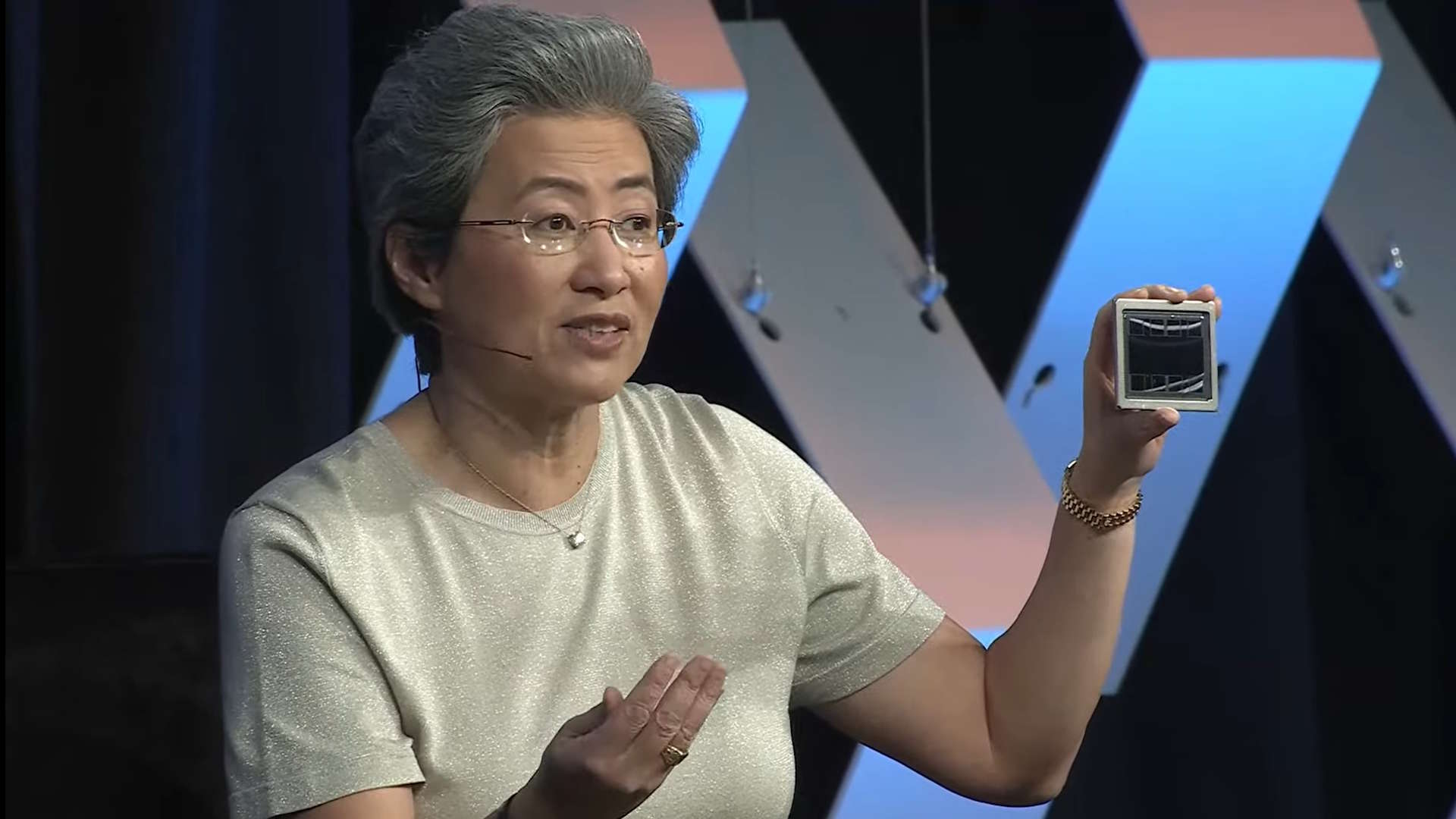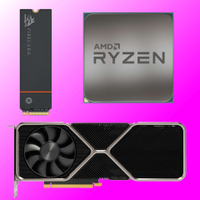
It's increasingly difficult to walk through our front doors, turn on our TVs, or even steal a quick glance at our phones without being bombarded by the promises of a brave new world of AI. That's not just the case for AI tools and end-user benefits, either, because there also seem to be endless proclamations of limitless AI market growth and money-making potential.
AMD CEO Dr. Lisa Su has once again thrown her name into the hat of AI market hopefuls—not without merit, either, I might add. In AMD's Q3 2024 earnings call (via Seeking Alpha), Su said, "In the Data Center alone, we expect the AI accelerator TAM will grow at more than 60% annually to $500 billion in 2028. To put that in context, this is roughly equivalent to annual sales for the entire semiconductor industry in 2023."
It's no surprise that companies which stand to benefit from the AI industry doing well are often those who big it up, predicting the most wondrous successes. But, at the same time, it's difficult not to agree with them. The AI industry, after all, has grown massively over the last few years and had a market size of almost $200 billion last year.
There's certainly debate over whether the AI boom might be a financial bubble that's destined to burst, but bubble or not, unless and until it does burst, the market's still there.
Su's comments need to be understood with a little more context, however. For one, she's talking about the predicted "TAM" for AI GPUs in 2028, which means "total addressable market". This means the absolute maximum market value that the AI GPU market could achieve: an ideal number. The semiconductor market that Su compares this to did rake in about $500 billion in sales in 2023, but these were actual sales, not TAM.
So, Su's not really saying that the AI GPU market will be as big in 2028 as the semiconductor market is today, but the numbers do help get across the sheer scale of the predicted AI GPU boom. It's also important to remember the obvious: GPUs are made from silicon, so if the AI GPU market increases, so does the semiconductor market.
As for AMD's role in all this, the company's AI GPU business has barely been going for a year and is already as big as its CPU operation, and its share price has more than doubled since mid 2022. In the wider world, GPUs are now all but synonymous with AI, so it's not surprising that AMD's GPU business has exploded, even if Nvidia Blackwell ends up taking the lion's share with AMD's CDNA 4 picking up the proverbial scraps.
The biggest gaming news, reviews and hardware deals
Keep up to date with the most important stories and the best deals, as picked by the PC Gamer team.
It's also no surprise that this explosion and AMD's record revenues isn't too impacted by its gaming revenues being down year-on-year. Even with today's biggest consoles donning AMD graphics, gaming's peanuts compared to AI and all the rest.
Still, these are our peanuts, as PC gamers, so fingers crossed the next generation of gaming GPUs from both AMD and Nvidia put some spark back into the gaming side of the business. I suppose if Su's AI market predictions are correct, we can at least be hopeful for continual investment into GPU architectures in the form of AI accelerators, and these can trickle down into our gaming GPUs. Hand-me-downs they might be, but powerful ones nonetheless. I'll take that.
Best CPU for gaming: Top chips from Intel and AMD.
Best gaming motherboard: The right boards.
Best graphics card: Your perfect pixel-pusher awaits.
Best SSD for gaming: Get into the game first.

Jacob got his hands on a gaming PC for the first time when he was about 12 years old. He swiftly realised the local PC repair store had ripped him off with his build and vowed never to let another soul build his rig again. With this vow, Jacob the hardware junkie was born. Since then, Jacob's led a double-life as part-hardware geek, part-philosophy nerd, first working as a Hardware Writer for PCGamesN in 2020, then working towards a PhD in Philosophy for a few years (result pending a patiently awaited viva exam) while freelancing on the side for sites such as TechRadar, Pocket-lint, and yours truly, PC Gamer. Eventually, he gave up the ruthless mercenary life to join the world's #1 PC Gaming site full-time. It's definitely not an ego thing, he assures us.


